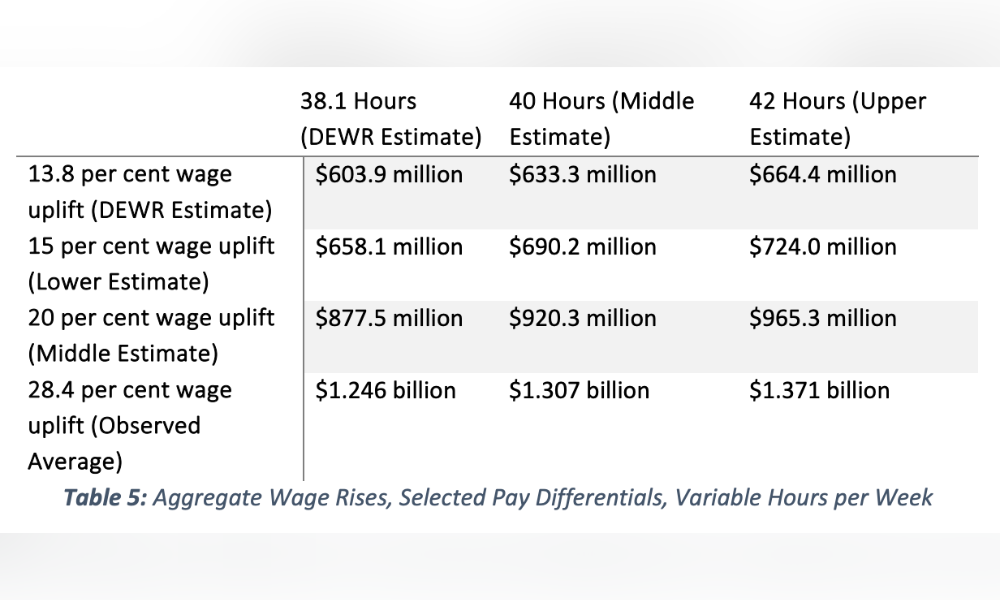
New data shows gains from Same Job, Same Pay on 'far greater scale than many expected'

The annual wage uplift as a result of Australia's Same Job, Same Pay (SJSP) laws has been projected to hit more than $1 billion, according to a new report.
Findings from the McKell Institute revealed that the SJSP annual wage uplift is estimated to reach $920.3 million in a moderate scenario, with the potential to hit $1 billion in higher estimates.

According to the report, this uplift could deliver a broader economic contribution of up to $2.556 billion annually.
"Same Job, Same Pay was designed to restore fairness to Australian workplaces. This report shows it is doing exactly that – and on a far greater scale than many expected," said Edward Cavanough, CEO of the McKell Institute, in a statement.
Australia's Same Job, Same Pay legislation was passed last year to close a loophole that leaves labour hire employees paid significantly less than regular employees despite performing the same job and working the same shifts.
While business groups called the legislation at the time an unfair attack on the labour hire sector, the McKell Institute report noted that there have been no negative employment effects from the changes.
"The passage and implementation of Same Job, Same Pay coincides with a record-tight labour market and has not contributed to any unintended impacts on unemployment as some had suggested," the report read.
It added that various industries across Australia are already seeing the benefits from the legislation.
In mining, over 1,5000 employees have received average pay increases ranging between $33,500 to $60,000.
In aviation, more than 3,000 Qantas flight attendants are also seeing their pay go up to $20,000 annually.
In retail, 200 workers at a Kmart distribution centre in Brisbane saw their hourly wage go up from $35.62 to $47.18, an increase of over 30%.
Cavanough said their data shows that the wage gains from the legislation are real and substantial, without consequences on jobs or economic performance.
"Critics predicted disaster. What we're seeing instead is rising wages and growing confidence," he said.